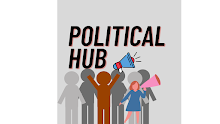'Would Google Collapse And The Internet Be Destroyed?': Justice Samuel Alito Grills Google Lawyer On Section 230
 |
| Google via Flickr |
On Tuesday, February 22nd, 2022, the Supreme Court heard oral arguments in the case of Gonzalez v. Google, which considers the responsibility of major social media platforms like Twitter, Facebook, and YouTube for their most dangerous posts. Justice Samuel Alito questioned lawyers during the oral arguments, delving into the issue of how responsible Google should be for the content that is posted on their platforms.
One of the main points of discussion during the oral arguments was the idea of YouTube labeling certain videos as the product of responsible news providers. Justice Alito raised the question of whether this would be considered Google's own content. The lawyers in the case responded that this would not be Google's own content, but rather the content of a third party being embedded on the platform.
Another point of discussion during the oral arguments was the issue of how search algorithms work on YouTube and other search engines. The lawyers explained that the algorithms are based on a variety of factors, including the popularity of the content, the relevance to the user's search query, and other similar factors. The lawyers argued that Google and other search engines have to make choices about which content to display, given the massive amount of content on the internet.
Justice Alito also raised the question of whether Google would collapse or if the internet would be destroyed if YouTube and Google were held liable for posting and refusing to take down defamatory and false videos. The lawyers responded that while this might be a possibility, it would not be as big of an issue as it might be in Europe, where there is not a strong tort system in place.
Overall, the oral arguments in Gonzalez v. Google highlighted the complexity of the issue of social media platforms' responsibility for dangerous content. While Google and other social media platforms have a responsibility to monitor and remove harmful content from their platforms, there are also concerns about free speech and the potential for over-regulation of the internet. It will be interesting to see how the Supreme Court ultimately decides in this case, and how this decision may impact the future of social media regulation in the United States.

Comments
Post a Comment
If You have any doubt, please let me know.